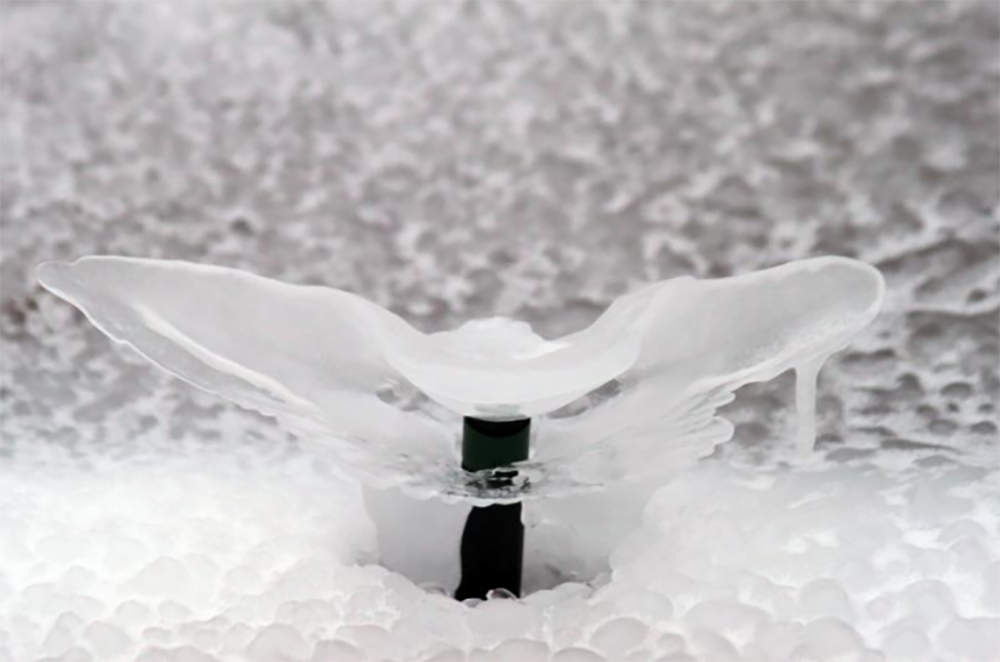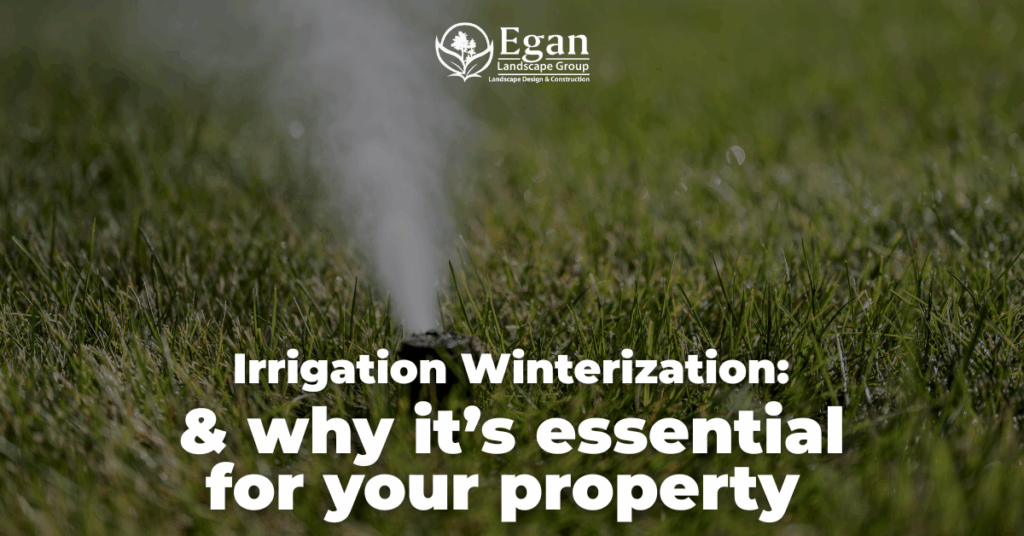As the vibrant fall colors fade and colder temperatures settle in, many homeowners and property managers shift their focus to preparing their landscapes for winter. But there’s one crucial step that often gets overlooked—irrigation winterization.
If you own a home or manage a commercial property in New England, failing to properly winterize your irrigation system can lead to cracked pipes, damaged sprinkler heads, and expensive springtime repairs. This process isn’t just about convenience, it’s about protecting your investment and ensuring your landscape is ready to flourish when spring arrives.
At Egan Landscape Group, we believe in proactive care and reliability. In this guide, we’ll explain why irrigation winterization is essential, how it benefits your property, and what steps you can take to get it done right.
What Is Irrigation Winterization and Why Does It Matter?
Protecting Your System from Freeze Damage
When temperatures in New England drop below freezing, any water left inside your irrigation system can freeze, expand, and cause pipes to burst or sprinkler heads to crack. This can result in costly repairs come springtime and may require replacing entire zones of your system.
Irrigation winterization involves blowing out your sprinkler lines, shutting off the water supply, and ensuring all components are drained, preventing freeze damage.


A Standard Practice with High Stakes
Winterizing irrigation systems is considered standard practice for landscape maintenance in cold climates, particularly in regions like New England, where winters are long and harsh.
Without proper winterization, your system is vulnerable to:
- Underground pipe ruptures
- Malfunctioning valves and heads
- Flooding during spring thaw
- Increased water bills due to leaks
When done correctly, winterization extends the life of your system and ensures a smooth startup in the spring.
Key Benefits of Irrigation Winterization
Protecting your irrigation system is not just about avoiding damage—it’s also about smart landscape management. Hover over the images below to read the top benefits:
How to Winterize Your Irrigation System (The Right Way)
While some homeowners attempt DIY methods, professional winterization is the most effective way to safeguard your system. Here’s how the process typically works:
Step 1: Shut Off the Water Supply
The main irrigation water line is turned off, usually from the basement or a dedicated shutoff valve near the meter.
Step 2: Blow Out the System
Using a high-powered air compressor, Egan Landscape Group’s technicians blow out each irrigation zone individually. This removes all water from pipes, valves, and sprinkler heads.
Step 3: Drain Backflow Preventers and Valves
These components are especially vulnerable to freeze damage. We ensure every valve and backflow device is fully drained and protected. Without this step, pipes and valves can crack, breaking the backflow and the irrigation system. Skipping this steep is a costly mistake that we proactively prevent!
Step 4: Inspect the System
Our team checks for leaks, broken heads, or irregularities during the process, so we can flag any issues that may need attention in the spring.
Frequently Asked Questions:
Ideally, late October to early November, before the first hard freeze. Egan Landscape Group begins scheduling winterizations in mid-October to accommodate all clients before the cold hits.
While it’s possible for smaller systems, we strongly recommend hiring professionals—especially for commercial or complex residential systems. Incorrect methods can lead to expensive damage.
We don’t just flip a switch and call it a day. Our irrigation team carefully follows every step to protect your system through the winter so it’s ready to go in the spring. Without proper care, it’s easy to make damaging mistakes — like running an air compressor too long and drying out the gaskets inside your heads and valves.
Pricing depends on system size and number of zones. At Egan Landscape Group, we offer competitive rates and package options for seasonal maintenance. Contact us for a custom quote.
Yes! Our irrigation technicians focus on both residential and commercial sized properties.
On commercial systems, we know how to winterize and protect electrical components of 2-wire irrigation systems to prevent damage over the winter.
Irrigation winterization isn’t just another task on your fall checklist—it’s a crucial step in protecting your landscape investment. Whether you’re managing a large commercial campus or simply want your home garden to thrive next spring, proper winterization ensures your system stays safe, efficient, and ready to go.
👉 Schedule your irrigation winterization today and avoid costly surprises when spring rolls around. Explore our Irrigation Services or contact us now for a free consultation.

